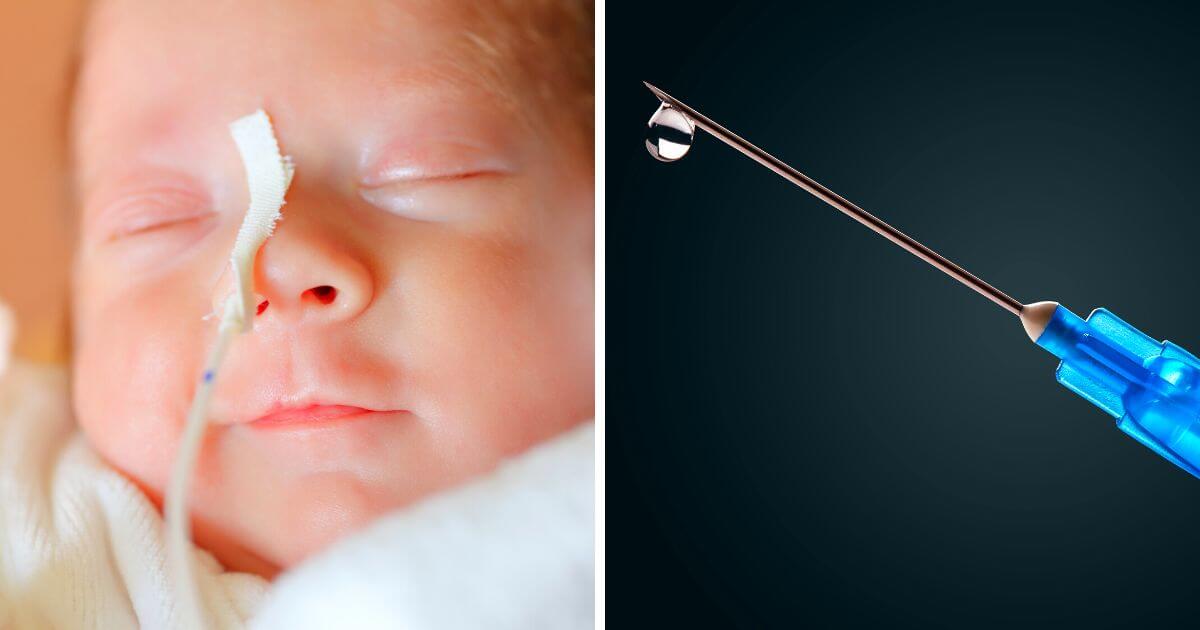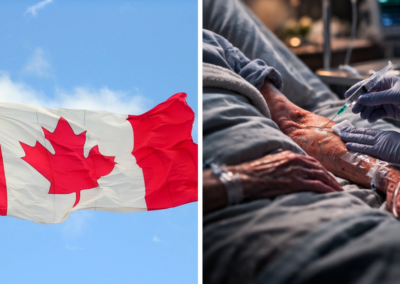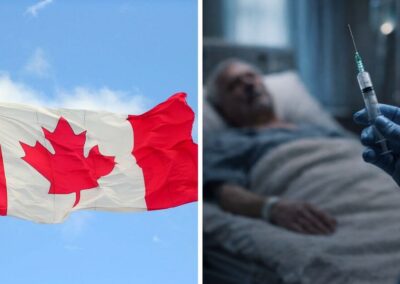The Quebec College of Physicians in Canada has been heavily criticised after its recent statement in support of euthanasia for severely disabled newborn children, as well as for children aged 14 to 17.
On Friday 7 October, Dr Louis Roy, speaking on behalf of the Quebec College of Physicians to the Special Joint Committee on Medical Assistance in Dying, recommended euthanasia for babies with “severe deformations” and “very grave… medical syndromes”.
He mentioned that this sort of argument had already been made in the Netherlands where euthanasia is permitted for babies before the age of one if they are thought to be suffering unbearably and with the consent of their parents.
However, Alex Schadenberg of the Euthanasia Prevention Coalition, suggested the College’s position made no sense. He said: “Why would you then have to give the child a lethal dose? If the child is not going to survive, the child can be kept comfortable and die naturally. There’s no reason for us to kill the child. There’s no reason for us to do this at all”.
Inclusion Canada said it was “alarmed” by Dr. Roy’s recommendation for the legalisation of euthanisa for babies with disabilities under the age of one.
Krista Carr, Inclusion Canada’s executive vice president said: “Most families of children born with disabilities are told from the start that their child will, in one way or another, not have a good quality of life”.
Euthanasia for disabled babies
Unavailable for an interview with National Post on Monday, the Quebec College of Physicians referred the news outlet to a press release published in December last year that pushed for euthanasia to be made available to children aged 0-1 and 14-17.
The press release said that euthanasia could be considered a possibilty for infants who are subject to “extreme suffering that cannot be soothed, coupled with very dark prognostics”.
The Federal Government passed legislation on Medical Aid in Dying (MAiD) in June 2016. Doctors are permitted to prescribe lethal drugs for self-administration and to administer lethal drugs to mentally competent terminally ill adults.
In March 2021, the Canadian Government amended the MAiD law to remove the requirement in the statute that death be “reasonably foreseeable”, after it was successfully challenged (to allow for assisted suicide in cases of non-terminal illness) in the Superior Court of Québec in 2019.
1 in 5 cite loneliness as a reason to want to die
In 2021, the number of people who ended their lives by assisted suicide and euthanasia increased by over 32% from the previous year, accounting for 3.3% of all deaths in Canada.
According to the latest report on Medical Assistance in Dying from Health Canada, 17.3% of people also cited “isolation or loneliness” as a reason for wanting to die. In 35.7% of cases, patients believed that they were a “burden on family, friends or caregivers”.
End-of-life concerns are not medical
Statistics from the state of Oregon, which made assisted suicide legal in 1997, tell a similar story. The Oregon Health Authority report for 2021 says that 54.2% of patients were concerned with being a “burden on family, friends/caregivers”. 92% of patients were concerned with being “Less able to engage in activities making life enjoyable”. 93.3% were concerned with “losing autonomy” and 68.1% were concerned with “loss of dignity”. Of the total who have died since 1997, 27.5% have listed “inadequate pain control, or concern about it” as one of their end-of-life concerns.
Right To Life UK spokesperson Catherine Robinson said: “While advocating for euthanasia for disabled children is appalling and a clear form of eugenic discrimination, it follows the logic of one of the main arguments for assisted suicide and euthanasia. We are frequently told that people who are suffering should be able to end their lives by assisted suicide or euthanasia. Why, then, according to this logic, should children not also be allowed to end their suffering in a similar way? If they cannot express such a wish to die because they are babies, adults can make the decision on their behalf and end their lives to relieve the suffering”.
“As macabre as it is, once we start thinking that the solution to suffering is to end the life of the sufferer, there is no good reason to limit euthanasia and assisted suicide to only adults. As the Canadian doctor recognised, this is precisely what has happened in the Netherlands. Unless there is a profound change in the medical culture in Canada so that patients are seen as people to be healed, rather than have their lives ended, it seems likely that Canada will go the same way and start euthanising their own children”.











